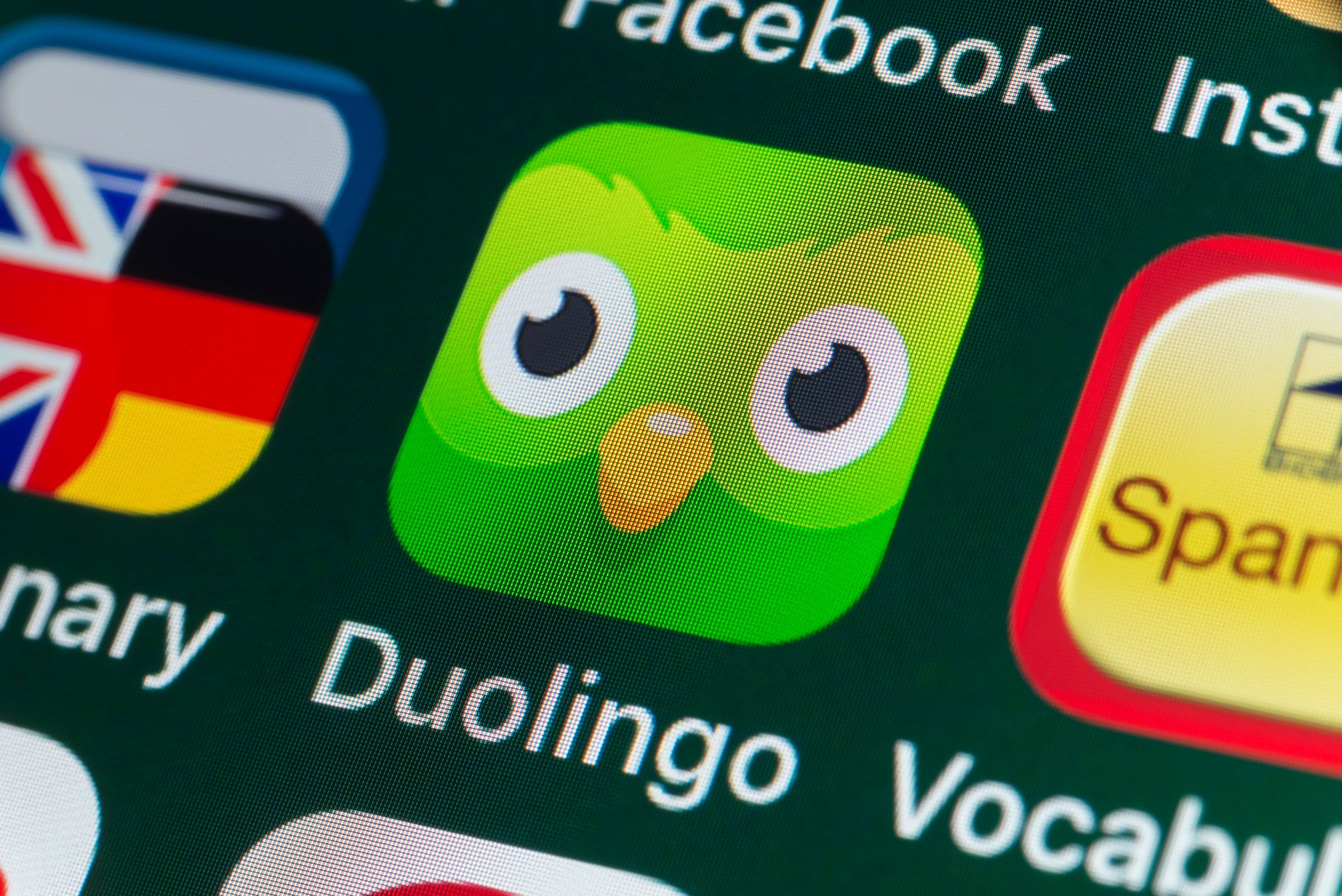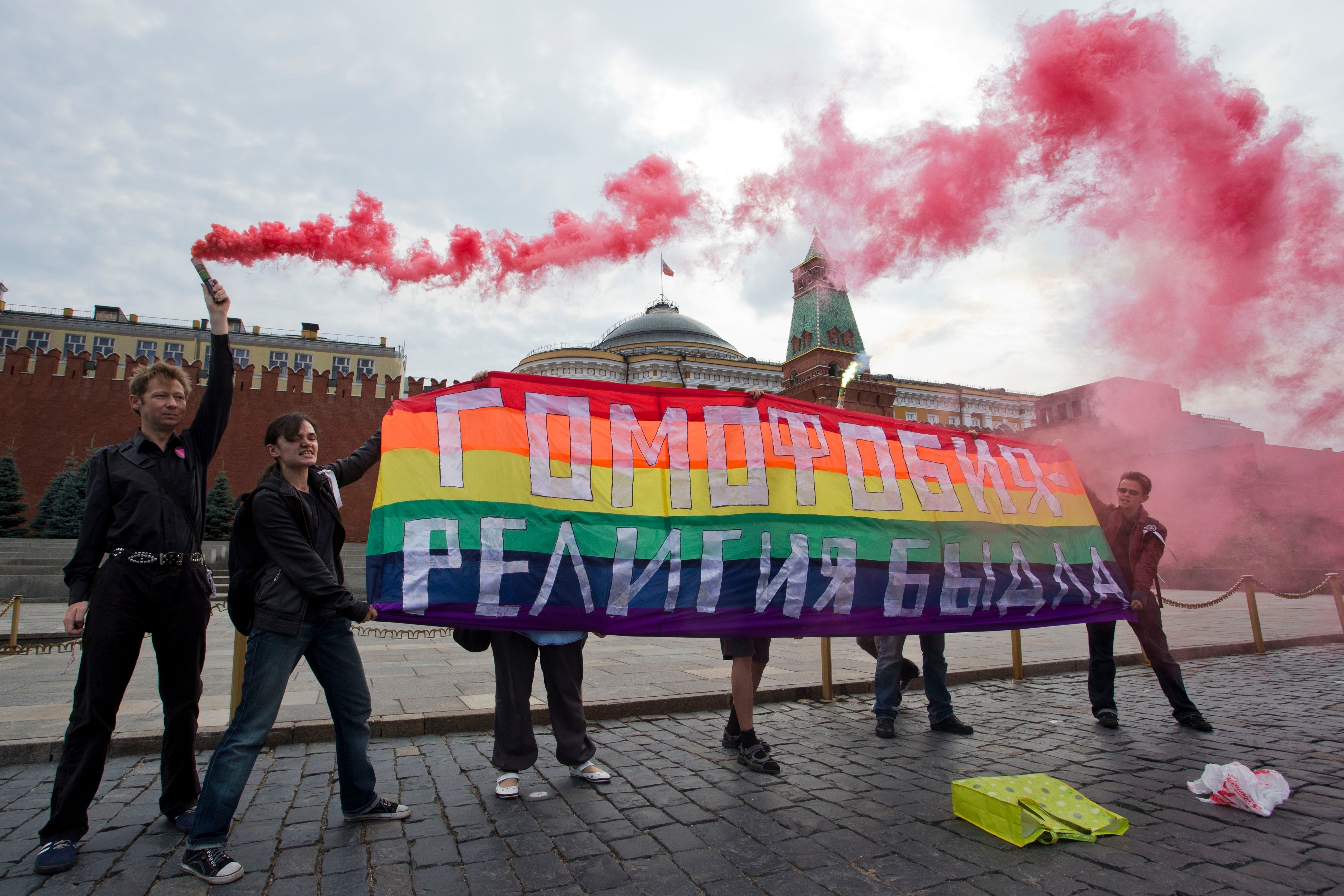Language learning app Duolingo deletes LGBT+ references in Russia
Russia has classed the ‘LGBT movement’ as extremist

Your support helps us to tell the story
From reproductive rights to climate change to Big Tech, The Independent is on the ground when the story is developing. Whether it's investigating the financials of Elon Musk's pro-Trump PAC or producing our latest documentary, 'The A Word', which shines a light on the American women fighting for reproductive rights, we know how important it is to parse out the facts from the messaging.
At such a critical moment in US history, we need reporters on the ground. Your donation allows us to keep sending journalists to speak to both sides of the story.
The Independent is trusted by Americans across the entire political spectrum. And unlike many other quality news outlets, we choose not to lock Americans out of our reporting and analysis with paywalls. We believe quality journalism should be available to everyone, paid for by those who can afford it.
Your support makes all the difference.Language learning app Duolingo has removed references in Russia to what Moscow calls “non-traditional sexual relations”.
The app deleted the language after being warned by Russia’s communications regulator about publishing LGBT+ content it classed as “extremism”.
Russia last year widened restrictions on the promotion of what it calls LGBT+ propaganda amid a broader crackdown on LGBT+ rights, which President Vladimir Putin has sought to portray as evidence of moral decay in Western countries.
Roskomnadzor, Russia’s communications regulator, had written to Duolingo, warning it against ‘publishing material promoting non-traditional sexual relations and LGBT+ propaganda.’
Duolingo’s media and investor relations teams did not immediately respond to requests for comment.
“The company Duolingo sent Roskomnadzor a letter in response, in which it confirmed that it had deleted materials promoting non-traditional sexual relations from its training app,” Russian news agencies quoted Roskomnadzor as saying on Tuesday.
Russia has designated the “LGBT movement” as extremist and those supporting it as terrorists, paving the way for serious criminal cases against LGBT+ people and their advocates.

The country’s top court ruled that LGBT+ activists should be designated as “extremists” and issued a ban against such work in November last year. This effectively outlaws LGBT+ activism across the country.
The ruling was the latest in more than a decade of restrictions on LBGT+ rights under Vladimir Putin, who has put what he calls “traditional family values” at the centre of his appeal to the Russian public.
The November hearing took place behind closed doors and with no defendant. Multiple rights activists have pointed out that the lawsuit targeted the “international civic LGBT+ movement”, which is not an entity but rather a broad and vague definition that would allow Russian authorities to crack down on any individuals or groups deemed to be part of the “movement”.
In a statement announcing a lawsuit filed to the court, Russia’s justice ministry argued that authorities had identified “signs and manifestations of an extremist nature” by an LGBT+ “movement” operating in Russia, including “incitement of social and religious discord”, although it offered no details or evidence. In its ruling, the court declared the “movement” to be extremist and banned it in Russia.
Russian courts have issued fines for those that violate its “LGBT propaganda” law, including online film distributors and executives.
Join our commenting forum
Join thought-provoking conversations, follow other Independent readers and see their replies
Comments